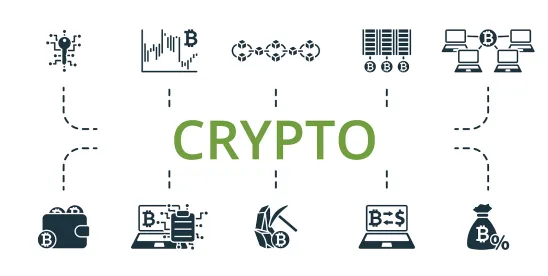The last two weeks have seen federal agencies continue refining their approach to the digital asset industry, while state regulators are beginning to play a more prominent role—even as the overall pace of development appears to be slowed. With the SEC stepping back from non-fraud enforcement, Oregon’s lawsuit against Coinbase highlights a potential shift toward increased state-level activity.
At the federal level, the SEC issued new guidance on registering crypto-related securities, the House held hearings on digital asset market structure, and the DOJ released a memo calling on prosecutors to “end regulation by prosecution”—underscoring a growing federal priority to focus enforcement on fraud and consumer protection rather than taking a broad adversarial stance toward the industry. Other notable developments include Illinois advancing a BitLicense 2.0 proposal, OpenSea seeking SEC guidance on NFT regulations, and Ripple moving to acquire global credit network Hidden Road.
These developments and a few other brief notes are discussed below.
Oregon Sues Coinbase Over Alleged State Securities Laws Violations: April 17, 2025
Background: Oregon’s state attorney general has brought a lawsuit against Coinbase, alleging the exchange has violated Oregon state securities laws through listings of certain assets alleged to be securities under Oregon law. Coinbase has released a statement claiming, “Oregon’s holdout campaign is obstruction for the sake of obstruction. It is a desperate scheme that does nothing to move the crypto conversation forward, and in fact takes us a giant leap backwards from hard-won progress.”
Analysis: As anticipated, states and private litigants are beginning to fill the securities litigation gap left by the SEC’s decision to drop its pending and threatened cases against digital asset participants in favor of pursuing a statutory and rulemaking-based framework. Oregon’s lawsuit, which names 31 assets as “unregistered securities,” is notable—especially as other states withdrew similar actions following the SEC’s retreat in the Coinbase matter. This latest development underscores that, despite federal de-escalation, litigation against exchanges remains an ongoing issue for the industry.
SEC Issues Guidance on How to Register Securities that Involve Crypto: April 10, 2025
Background: Much of the focus at the SEC post-Gensler has been on releasing guidance on what crypto offerings are not securities (memecoins, stablecoins, etc.). The SEC Division of Corporation Finance has now put out guidance for issuers whose securities involve crypto assets on how federal securities law disclosure requirements apply. It recognizes that issuers may offer equity or debt securities as part of operations related to networks, applications, and crypto assets, and highlights the need for tailored, clear, and consistent disclosure aligned with existing rules (e.g., Regulation S-K, Forms S-1, 10, 20-F, and 1-A). Key disclosure elements include a focused description of the issuer’s business and developmental milestones, potential risks (such as technological, regulatory, and liquidity risks), a complete description of the securities (including any unique features and technical specs), and information on directors, executive officers, and significant employees (or third parties) performing policy-making functions.
Analysis: Tokenized securities are coming to traditional finance. Major actors in the traditional financial world are already preparing for that eventuality. Most digital assets are not securities, but many securities could be better handled through addendum only ledger technology rather than a seemingly endless number of middlemen all getting their cut to make sure none of the other middlemen are cheating the consumer. So, while the SEC and Congress work through determining which digital assets are securities and which are something else, this is a good step to allow innovative companies to start registering tokenized products.
Market Structure Hearings Held in House of Representatives: April 9, 2025
Background: The House Financial Services Committee’s Digital Asset Subcommittee and the House Agriculture Committee’s Digital Asset Subcommittee both held hearings on how to approach an overarching market structure for digital assets now that stablecoins seem to be on the fast track to regulatory standards. There is a broad consensus that digital assets that are securities need to be provided a way to register with the SEC and abide by SEC rules that aren’t so onerous that the registration process kills any value of the product.
Analysis: You can probably read the statements from witnesses Bill Hughes, Chris Brummer, and Rodrigo Seira to get the gist of where the focus should be for digital asset regulation. Both hearings had a noticeable focus on use cases for digital assets. We are still waiting for what the market structure bill will look like. It will be close to FIT21, previously passed through the House Financial Services Committee, but we don’t know how close it will be yet, as there were noticeable weaknesses in the bill. Draft language is expected to be public soon, though, and all expectations are for the determining factor between securities offerings and non-securities offerings to focus on “control” as opposed to “decentralization,” which was the focus of last year’s bill.
DOJ Releases Memo “Ending Regulation by Prosecution”: April 7, 2025
Background: Deputy Attorney General Todd Blanche has issued a memorandum to Department of Justice employees with the subject reading “Ending Regulation by Prosecution,” where he states, “Consistent with President Trump’s directives and the Justice Department’s priorities, the Department’s investigations and prosecutions involving digital assets shall focus on prosecuting individuals who victimize digital asset investors or those who use digital assets in furtherance of criminal offenses…” The memo clarifies that the DOJ is not going to focus efforts on exchanges or wallets for the actions of third-parties, and is not the regulator of alleged unregistered money transmission laws. It also disbands the National Cryptocurrency Enforcement Team, which was responsible for most current investigations and prosecutions in the space over the last few years.
Analysis: Note that this memorandum does not include guidance not to prosecute alleged violations of 18 U.S.C. 1960(b)(1)(C), which involves allegations of transmitting funds that are “knowingly” the product of criminal offenses and is the heart of the Roman Storm and Samuri Wallet developer cases. Interestingly, the memo calls out the issue of how digital asset losses are calculated when trying to compensate victims (a not-so-subtle reference to FTX depositors getting ~$20,000 per Bitcoin lost when Bitcoin was worth quadruple that by the time repayments happened). Not sure if there is a solution to this other than making people choose early in the process if they want in-kind or value of asset at time of theft. Unfortunately for Do Kwon, even with this DOJ pivot, his suit will remain ongoing.
Briefly Noted:
Paul Atkins Sworn in as SEC Chair: Paul Atkins has finally been sworn in as SEC Chair, marking the formal start of a new era for the Commission. The agency remained active in redefining its priorities throughout his confirmation process, and Atkins was widely understood to be in alignment with the key decisions made during that period. With his swearing-in now complete, he is positioned to implement a full regulatory agenda and set the tone for the post-Gensler SEC—potentially accelerating shifts in enforcement priorities, rulemaking, and digital asset policy.
Illinois Looking to Pass BitLicense 2.0: An Illinois bill is gaining traction and is expected to pass, which would enact similar onerous reporting and registration requirements as the New York BitLicense. With the combination of the Oregon lawsuit discussed above, this further emphasizes the need for comprehensive regulations at a federal level to prevent fractionalized and contradictory rules.
OpenSea Open Letter: OpenSea has submitted a public letter to the SEC advocating for NFT marketplaces to be carved out of broker/dealer registration requirements with the SEC. It is clear that even with NFTs decline, they are still a crucial part of the ecosystems that need regulatory guidance.
Nova Labs Lawsuit Dismissed: Nova Labs (the developer behind Helium Network) was sued in the last days before Gensler resigned, and that lawsuit has now been dismissed with prejudice. So this ordeal actually ended up good for them since the lawsuit being brought and then dismissed in this way prevents any future lawsuit over the same allegations from the agency.
Hinman Cleared by Office of Inspector General: Former Corporation Finance Director Bill Hinman has been cleared of allegations that his infamous speech was the result of insider dealings.
$1.2 Billion M&A Deal: Ripple is reportedly acquiring global credit network Hidden Road for $1.25 billion. This is reportedly an effort to give functionality to Ripple’s stablecoin, RLUSD, in traditional finance for cross-border settlements.
MEV Submission: Really great work from the team at Paradigm explaining how MEV works and what the SEC should consider in regulation in light of those technical realities. Good stuff.
DOJ Memo Confirmed Not Applicable for Fraud: As stated above, the DOJ memo regarding cutting down on criminal actions for crypto actors is not a get out of jail free card for past (alleged) frauds.
SEC Roundtable on Crypto Custody: The SEC has announced the time and speakers in its next crypto roundtable on custody. It remains great to see as many of these conversations as possible happen in public.
Phantom Wallet Lawsuit: It looks like an attorney is suing the wallet developer where he held certain memecoins he created, but which were stolen through his computer being compromised. This will be something worth following, especially if wallet developers are regulated under a market structure bill or similar legislation.
Conclusion:
The last two weeks have been relatively quiet in terms of crypto legal development. With the SEC pivoting away from prosecuting non-fraud crypto cases, state regulators have begun stepping into that role, most notably with Oregon suing Coinbase over alleged violations of state securities laws. At the federal level, the SEC provided guidance on registering securities that include crypto assets, the House of Representatives held market structure hearings, while the DOJ aimed to “end regulation by prosecution.”






 />i
/>i

